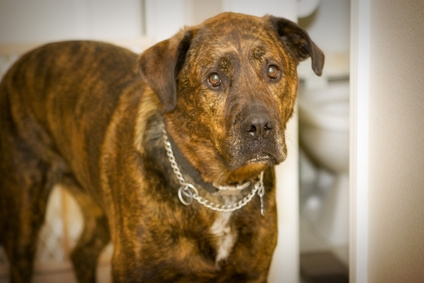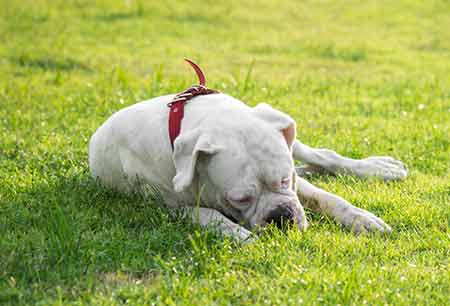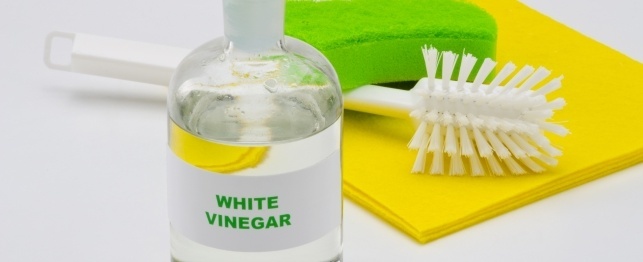
How to Tell if a Dog is Dehydrated. When your dog is vomiting, running a fever or is suffering from diarrhea, it could become dehydrated. Dehydration is a serious condition and needs to be addressed immediately, either at home or in a veterinarian's office. There are several signs you'll need to watch for to help you determine whether your dog is dehydrated or not. If there's any question about your pet's well-being, consult your veterinarian for a definitive diagnosis and treatment plan.

Check the elasticity of the skin on your dog's neck. In a normally hydrated dog, when you pull the skin on the top of its neck and then let it go, the skin quickly goes back to its normal position. Dehydrated dogs' skin will remain tented after you pinch it together or will very slowly return to its original position.
To test for dehydration in elderly or obese animals, feel the gums, rather than give a skin test. Dehydrated dogs have dry, sticky gums. A dog that is normally hydrated has moist gums. Check the dog's eyes as well. If the eyes appear sunken, the dog is likely suffering from dehydration.
Check the color of the gums. Your dog's gum color is and indication of how much oxygen is in its bloodstream. Lift a lip and look at the color of the gums or lips. Pale gums and lips indicate a problem. If your dog has pigmented gums (black), check the color of the mucous membranes inside the lower eyelid, in her vulva or his prepuce.
Test the capillary refill time. Press down on your dog's gums using the flat of your finger. Remove the finger and look for the white spot the pressure created. Count how long it takes for the gum to return to a pink color. A normally hydrated dog should return to pink gums in one to two seconds. If it takes longer to return to the normal color, consult a veterinarian.
 What Your 8-Week-Old Puppy Needs
What Your 8-Week-Old Puppy Needs
What Your 8-Week-Old Puppy Needs
What Your 8-Week-Old Puppy Needs
 How to Put Muscle Weight on a Dog Fast
How to Put Muscle Weight on a Dog Fast
How to Put Muscle Weight on a Dog Fast
How to Put Muscle Weight on a Dog Fast
 Why Does My Dog Eat Grass?
The fact is that even if your dog h
Why Does My Dog Eat Grass?
The fact is that even if your dog h
 Everyday Household Items Useful for Dog Care
Everyday Household Items Useful for Dog Care
Everyday Household Items Useful for Dog Care
Everyday Household Items Useful for Dog Care
 What to Expect From a Holistic Veterinarian
Some dog owners choose to take natu
What to Expect From a Holistic Veterinarian
Some dog owners choose to take natu
Copyright © 2005-2016 Pet Information All Rights Reserved
Contact us: www162date@outlook.com